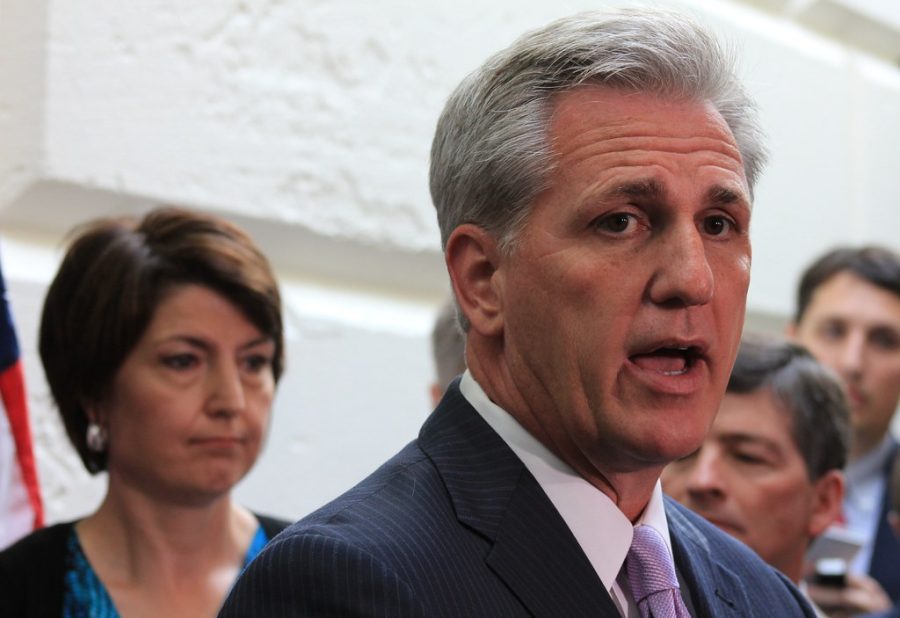Kevin McCarthy Elected as Speaker of the House
January 12, 2023
This year marks the start of the 118th United States Congress meeting. Before the new Congress could begin, they needed to elect a new leader. The House of Representatives meets every two years to vote on a new House Speaker. The Speaker is the majority party leader and the House of Representatives administrative head. Before the new representatives could get sworn in, the current Congress decided who the new house speaker will be.
To become the Speaker of the House, a representative has to receive 218 of the 435 votes. In November of last year, majority control of the House flipped to the Republicans after six years. The previous minority leader of the Republican party, Republican Representative Kevin McCarthy, was expected to get picked and quickly voted in as the new majority leader. While the Republicans won the House, they only won by five seats. For McCarthy to win, he had to receive at least 218 of the votes, and with the Democrats voting unanimously against him, he had to get all those votes from his party who had a small margin for disagreements.
McCarthy faced a problem when 20 Republicans refused to vote for him because of inter-party and policy disagreements. The small group of Republicans wanted concessions and changes to the House, giving this small group more power in the Chamber. Some of these demands included creating an investigative committee to investigate the CIA and FBI, pushing to reduce government salaries, higher chances of spending cuts and having any one member have the ability to call for a vote to remove the Speaker.
On Jan. 3, 2023, Congress met at the House Chamber to vote. The 20 Republicans that were against McCarthy voted for a third party and because no speaker received a majority for the first time since 1923, the house leader was not elected on the first ballot. Shortly after, McCarthy called for another vote, losing a second time. Then called for another and lost a third time. By Jan. 5, three days into voting, Congress was on its seventh vote for a speaker.
Voting for the New Speaker of the House is Congress’ first order of business before starting. Without a speaker, Congress is unable to swear in new members, set up house committees or pass and adopt new legislation.
On Jan. 7 Congress finally had a majority vote for Representative McCarthy. After agreeing to all the concessions and deals, McCarthy won the necessary votes and the Chamber could swear in its new members and start its government role.







